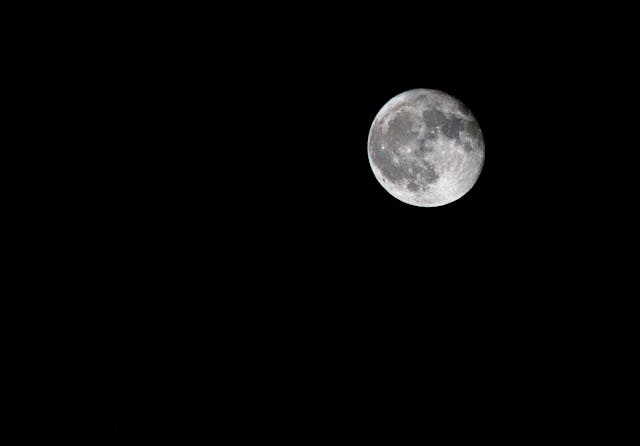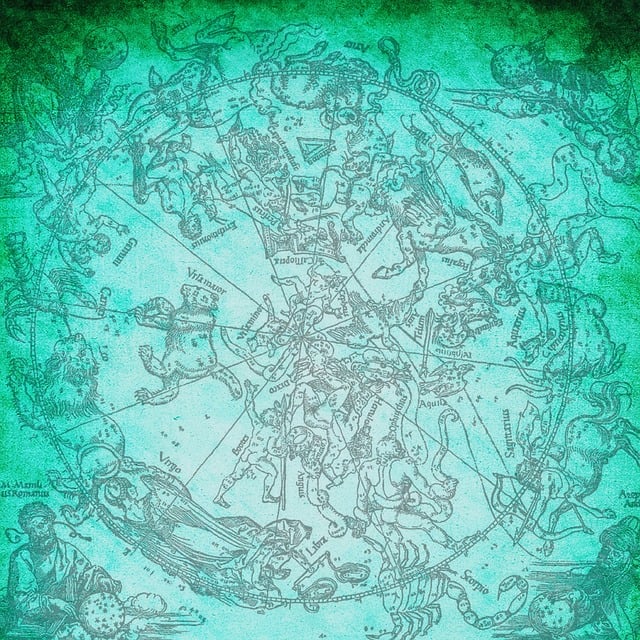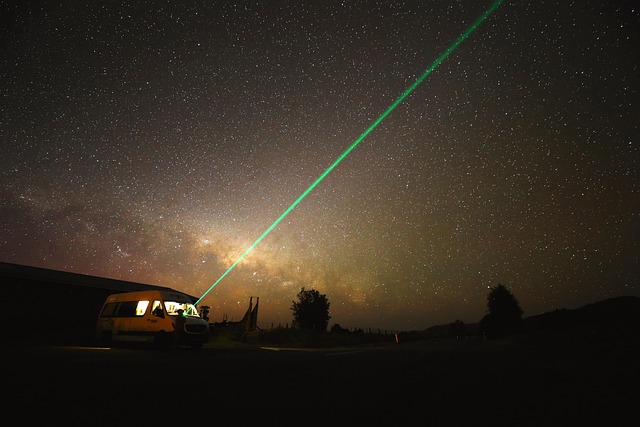Ok so I never thought I’d be writing about whether moon phases effect behavior, but here we are. My sister-the family astrology nut-has been telling me for years that I get weird during full moons, and I always rolled my eyes. Then I started actually paying attention, and… look, I’m not saying she’s right (don’t let it go to your head, Sarah), but there’s definitely something worth exploring here.
For the record, I’m a Taurus. I need facts. I need things that make logical sense. So when I started noticing patterns in my sleep, my energy levels, and even my mood that seemed to line up with moon phases, I did what any skeptical millennial would do: I went down a research rabbit hole at 2 AM.
The Science Behind Moon Phases and Human Behavior
Let’s start with what we actually know. The moon controls tides-that’s not up for debate. And since humans are roughly 60% water, it makes sense that people have wondered if moon phases effect behavior in similar ways. But here’s where it gets interesting (and complicated).
A Swiss study from 2013 actually found that people took longer to fall asleep and slept about 20 minutes less during full moons. Their deep sleep decreased by 30%, and their melatonin levels dropped. I literally read this study three times because I couldn’t believe it was real science and not just astrology blogs.
But then other studies couldn’t replicate these results. Some researchers think it’s confirmation bias-we remember the weird full moon nights and forget the perfectly normal ones. Others suggest it might be about light exposure rather than gravitational pull.
The thing is, absence of perfect evidence doesn’t mean nothing’s happening. It just means we don’t fully understand it yet.
My Completely Unscientific Full Moon Experiment
For the past six months, I’ve been tracking my sleep, mood, and productivity against moon phases using the app Time Passages (yes, an actual app, because I’m not about to hand-draw moon charts like it’s 1692). And honestly? The patterns are kind of undeniable.
During full moons, I consistently sleep like garbage. My Fitbit backs this up-my REM sleep drops, I wake up more frequently, and I’m basically a zombie the next day. My boyfriend (Scorpio, which explains a lot) thinks I’m imagining it, but the data doesn’t lie.
New moons are different. I feel introspective, less social, and genuinely content staying home with my balcony herb garden. Is this because moon phases effect behavior, or because I’ve convinced myself they do? I genuinely don’t know, and I’m okay with that uncertainty.
How Different Moon Phases Supposedly Affect Us
New Moon: The Reset Button
The new moon is essentially the moon saying “I’m taking a personal day.” It’s dark, it’s hidden, and apparently this is when we’re supposed to set intentions and start fresh.
I used to think this was complete woo-woo nonsense. Then I noticed I naturally start new projects during new moons without even trying. Last month’s new moon, I finally started that clothing repair project I’d been putting off for three months. The month before, I reorganized my entire home office.
Coincidence? Maybe. But I’ve learned to work with this energy instead of against it. If I feel like cocooning at home during a new moon, I don’t force myself to be social. And that’s OKAY.
Waxing Moon: Building Energy
As the moon grows fuller, so does our energy-supposedly. This two-week period between new and full moon is when moon phases effect behavior by making us more motivated and outgoing.
I’ve noticed I schedule more social stuff during waxing moons without consciously planning it. Coffee dates, neighborhood composting group meetings, even just running errands-it all feels easier. My Leo friend organized our neighborhood’s solar panel initiative during a waxing moon, and honestly, I don’t think that’s a coincidence. That’s peak Leo energy meeting lunar momentum.
Full Moon: Peak Everything
Full moons get all the attention, and for good reason. This is when emergency rooms supposedly get busier, when people act stranger, and when moon phases effect behavior in the most noticeable ways.
Here’s what I’ve observed: I’m not turning into a werewolf (disappointing), but I am more emotionally intense. Things that normally wouldn’t bother me suddenly feel urgent. I’m more creative but also more scattered. I once started three different DIY projects during a full moon and finished exactly zero of them.
My Gemini brother calls it “chaos energy,” and he thrives on it. Meanwhile, I’m over here trying to remember which herbs need watering while simultaneously reorganizing my entire bookshelf at 11 PM.
The sleep thing is real, though. Like, scientifically-backed-by-that-Swiss-study real. Even if I avoid screens and do my whole nighttime routine perfectly, I still sleep worse during full moons. My mom (Capricorn) tracks this stuff in spreadsheets now, because of course she does.
Waning Moon: The Slow Decline
After the full moon, we enter the waning phase-two weeks of decreasing lunar visibility. This is supposedly when we should release things, let go, and wind down.
I’ve found this is actually my most productive work phase. While everyone else is riding that full moon intensity, I’m getting deep focus work done during the waning moon. Important deadlines? I actually prefer handling them during waning moons now because I can concentrate better.
But I’m also more likely to cut people out of my life during this phase. Not in a dramatic way-I just suddenly realize I’ve been tolerating situations that don’t serve me, and I’m done. Is this moon phases affecting my behavior, or just me finally listening to my gut? Honestly, probably both.
The Lunar Living Approach I Actually Use
After tracking this for months, I’ve developed what I call a “lunar-aware” lifestyle. I’m not planning my entire life around moon phases like some kind of ancient priestess, but I do pay attention to the patterns.
During new moons, I focus on starting things-new habits, new projects, new chapters. I wrote about how moon phases shape your sleep and productivity if you want to dive deeper into making this actually practical instead of just theoretically interesting.
Waxing moons are my social and networking time. I schedule coffee meetings, reach out to people, and generally show up in the world more. This wasn’t a conscious strategy at first-I just noticed the pattern and leaned into it.
Full moons are for creative chaos and emotional processing. I journal more, I let myself feel things more intensely, and I definitely don’t make any major life decisions. I also lower my sleep expectations and am just nicer to myself about being tired.
Waning moons are for deep work, letting go of what doesn’t serve me, and generally being more internal. This is when I tackle the hard stuff that requires focus.
What the Research Actually Says (When It Says Anything)
Look, the scientific community is divided on whether moon phases effect behavior in any meaningful way. Some studies show correlations, others don’t. A 2019 review of existing research found no consistent evidence that the moon affects human behavior-but they also admitted that lunar effects might be too subtle for our current research methods to detect.
There’s also the issue of publication bias. Studies showing no effect are less likely to get published than ones showing interesting correlations. So we might be missing a lot of data that would give us the full picture.
The gravitational pull argument doesn’t really hold up scientifically. Yes, the moon affects ocean tides, but the gravitational effect on the water in our bodies is negligible-less than a mosquito landing on your arm would produce.
However-and this is important-light exposure is real. Full moons genuinely affect how much natural light we’re exposed to at night, even if we’re not directly staring at the moon. This could mess with our circadian rhythms and melatonin production, which absolutely would affect behavior, sleep, and mood.
The Placebo Effect Isn’t Actually a Bad Thing
Here’s where I’m going to say something that might be controversial: even if moon phases effect behavior only because we believe they do, that’s still a useful framework.
If thinking about moon phases helps me understand my energy patterns better, does it matter whether it’s “real” in a scientific sense? I use the lunar cycle as a way to give myself permission to have different needs at different times, rather than trying to be consistently productive and social every single day.
My Pisces friend uses mood boards and visualization techniques that probably work the same way-they’re tools for self-awareness and intentionality, regardless of their cosmic validity. I actually explored how different zodiac signs approach self-care in another piece, and the common thread is finding what works for you, not what makes scientific sense to everyone else.
Practical Ways to Work With (or Ignore) Moon Phases
If you’re curious about whether moon phases effect behavior for you specifically, here’s what I’d suggest:
Track it yourself. Use any moon phase app (I like Time Passages, my sister uses Co-Star) and note your energy, mood, and sleep for a couple of months. See if patterns emerge. Don’t force them-just observe.
Give yourself permission to have different needs at different times. Whether it’s because of the moon or just natural human variation, it’s okay to be more social sometimes and more hermit-like other times.
Use moon phases as planning tools. If you notice you sleep worse during full moons, maybe don’t schedule important early morning meetings the day after. If you feel more creative during certain phases, block out time for creative projects then.
Don’t let it become another thing you’re “bad at.” If you completely ignore moon phases and feel great, that’s perfect. If you find them useful, also perfect. There’s no right way to be human.
My Boyfriend Still Thinks I’m Making This Up
Every time I mention feeling “off” during a full moon, my Scorpio boyfriend gives me this look-like he’s trying to decide if I’m joking or genuinely believe this stuff. The thing is, I’m not even sure myself.
What I do know is that paying attention to moon phases has made me more attuned to my natural rhythms in general. Maybe the moon is actually influencing me, or maybe using moon phases as a framework just gave me permission to notice patterns I was previously ignoring.
I’ve also become more observant about how zodiac signs influence problem-solving styles, which has helped me understand why my Taurus approach to life-needing everything to be practical and sensory-makes me resistant to purely mystical explanations.
Either way, the point is this: I’m sleeping better (except during full moons, RIP), I’m more productive, and I’m kinder to myself about having variable energy levels. If that’s a placebo effect, it’s a damn good one.
When Moon Phases Definitely Don’t Affect Behavior
Let me be clear about what moon phases do not do: They don’t make you gain weight (that’s just regular human fluctuation), they don’t cause crime waves (that’s been thoroughly debunked), they don’t make you more fertile (looking at you, pregnancy forums), and they definitely don’t excuse bad behavior.
“Sorry I was rude, it’s a full moon” is not a thing. We’re adults with self-control. The moon might affect your mood, but you’re still responsible for your actions.
Also, if you’re experiencing severe mood swings, sleep disruption, or behavioral changes that are genuinely disrupting your life, that’s not about moon phases-that’s about talking to a doctor or therapist. I’m just some person on the internet who tracks sleep data; I’m not qualified to diagnose anything.
The Bottom Line on Moon Phases and Behavior
So do moon phases effect behavior? The scientific answer is “maybe, but we’re not sure, and the effect is probably minimal.” The practical answer is “if paying attention to moon phases helps you understand yourself better, does it matter?”
I’ve found that tracking moon phases has given me a useful framework for understanding my natural rhythms. Whether the moon is actually causing these patterns or I’m just pattern-matching like humans do, the result is the same: I’m more self-aware and more intentional about how I spend my energy.
I’m not saying you need to start planning your life around lunar cycles or that you should buy moon water or whatever else the internet is selling. But maybe-just maybe-next time you feel weirdly energetic or can’t sleep for no apparent reason, check what phase the moon is in. You might be surprised by what you notice.
Now if you’ll excuse me, it’s a new moon and I have approximately seven new projects I want to start. Will I finish any of them? The waning moon in two weeks will tell.
And if you’re looking for more ways to align your daily life with cosmic patterns (or just want to understand yourself better), I’ve written about zodiac-based morning routines that might actually work for your specific needs-moon phases optional.
The moon’s going to do what it does regardless of whether we’re paying attention. The question is just whether paying attention makes your life better. For me, it does. Your mileage may vary.



